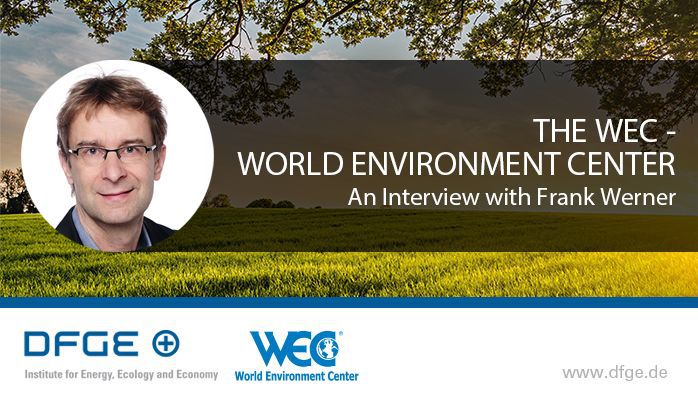
It feels like the world is coming apart. First, COVID-19 devastated our communities and shut down our economy. Now America’s cities are burning in reaction to the death of George Floyd at the hands of police in Minneapolis, and the deaths of Breonna Taylor, Ahmaud Arbery, and Robert Avitia, the latest victims in a wave of violence against people of color.
For those of us dedicated to sustainable development, it can be hard to stay focused on long-term goals that seem remote in comparison to today’s urgent crises.
But are they?
Look behind the emergencies of the day, and it’s not hard to connect dots that lead right back to our mission—and that challenge the ways that many of us have pursued that mission.
One of the first patterns to emerge starkly is the pervasive impact of systemic racism.
Why are black Americans dying of COVID-19 at a rate 2.5 times greater than white Americans? While they make up 13 percent of the population, African Americans have suffered 25 percent of the country’s COVID-19 deaths. It’s not because black people are inherently more vulnerable to the novel corona virus. But they are more likely to hold jobs that don’t allow them to work from home—leading to greater exposure. And they are more likely to live in communities that are more densely populated, with worse air quality, fewer healthy food options, and poorer health care services than their white neighbors—making them more vulnerable to die and less likely to recover from infection.
Why are black Americans killed by police at a rate 2.5 times greater than white Americans? Again, they are 13 percent of the population, but African Americans were victims of 24 percent of fatal police shootings in 2019—and more likely than white victims to be unarmed. We know that racial profiling plays a role, along with higher rates of policing in minority neighborhoods.
All of these factors—from poorer, more polluted minority communities to inherent biases against people of color—are products of America’s systemic racism: generations of decisions by public and private institutions to value black and brown lives less than white ones.
What does this have to do with WEC and our mission? Everything. Development isn’t sustainable if it disadvantages whole communities. It’s unjust and inherently unsustainable. A COVID hotspot anywhere is a threat to people everywhere. In the prophetic words of James Baldwin, written nearly 60 years ago, “a bill is coming in that I fear America is not prepared to pay.”
If we are serious about sustainable development, we need to ask ourselves who benefits from the development and who pays the costs, especially when systemic factors lead some groups of people regularly to bear an unfair burden so that others can benefit. Across many American cities, for example, minority neighborhoods are located downwind of wealthier white ones, leading to dirtier air and contributing to higher rates of asthma and negative health outcomes.
If systemic racism is a fundamental stumbling block to sustainable development, how is our sustainability community doing in addressing it?
Not well.
While the environmental justice movement has been a positive force for change for more than 30 years, the mainstream of sustainability activism continues to focus on important macro-level changes (think decarbonization, circular economy, biodiversity conservation, or clean energy) without assessing or addressing sufficiently how these initiatives impact underrepresented communities. While the intentions may be good, systemic racism means that the outcomes are unlikely to be just, without more conscientious attention.
What can WEC and our members do?
First, we need to diversify our ranks, especially our leadership. People of color are underrepresented in the leadership of American businesses and organizations in general. The situation is worse in academic and non-profit organizations, and even more so in environmental organizations and the natural sciences. We need to support initiatives like UCLA’s Center for Diverse Leadership in Science, which partners with academic institutions, businesses, and NGOs to bring more people from underrepresented communities into the environmental sciences at every level, from high school, through college and graduate programs, and into professional careers. All companies and organizations have to put more people of color on our boards and leadership teams.
Second, we should ensure that our sustainability initiatives serve diverse constituencies, especially historically unrepresented communities. This isn’t just about token projects. Sustainability goals and metrics, for companies and NGOs, should ensure that marginalized communities are benefited by initiatives, and not further burdened.
Third, we should advocate for systemic change. As with sustainability in general, individual company initiatives are important, but far from sufficient. Real progress requires policy change. Companies need to make sustainability a priority in their public policy advocacy, and they should pay special attention to racial justice. WEC can serve as a sounding board for valuable policy initiatives. Should the earned income tax credit be expanded? We can debate this and other possibilities.
Lastly, we all need to listen and learn. I am a cisgender, heterosexual, white male, and so I have far more to learn about systemic racism and other forms of discrimination than I can ever know. I’ve shared some ideas here, but I am eager to learn from my peers who have more wisdom. I want WEC to be of service in this moment of crisis as a place for thoughtful people to learn from one another and build a path to a better future. We are an organization built on honest and respectful collaboration, and our society needs to collaborate now more than ever.
Perhaps George Floyd didn’t die in vain. Perhaps a better world can emerge from this moment of pain and tumult. I am hopeful. I encourage all of us to listen and build together.




